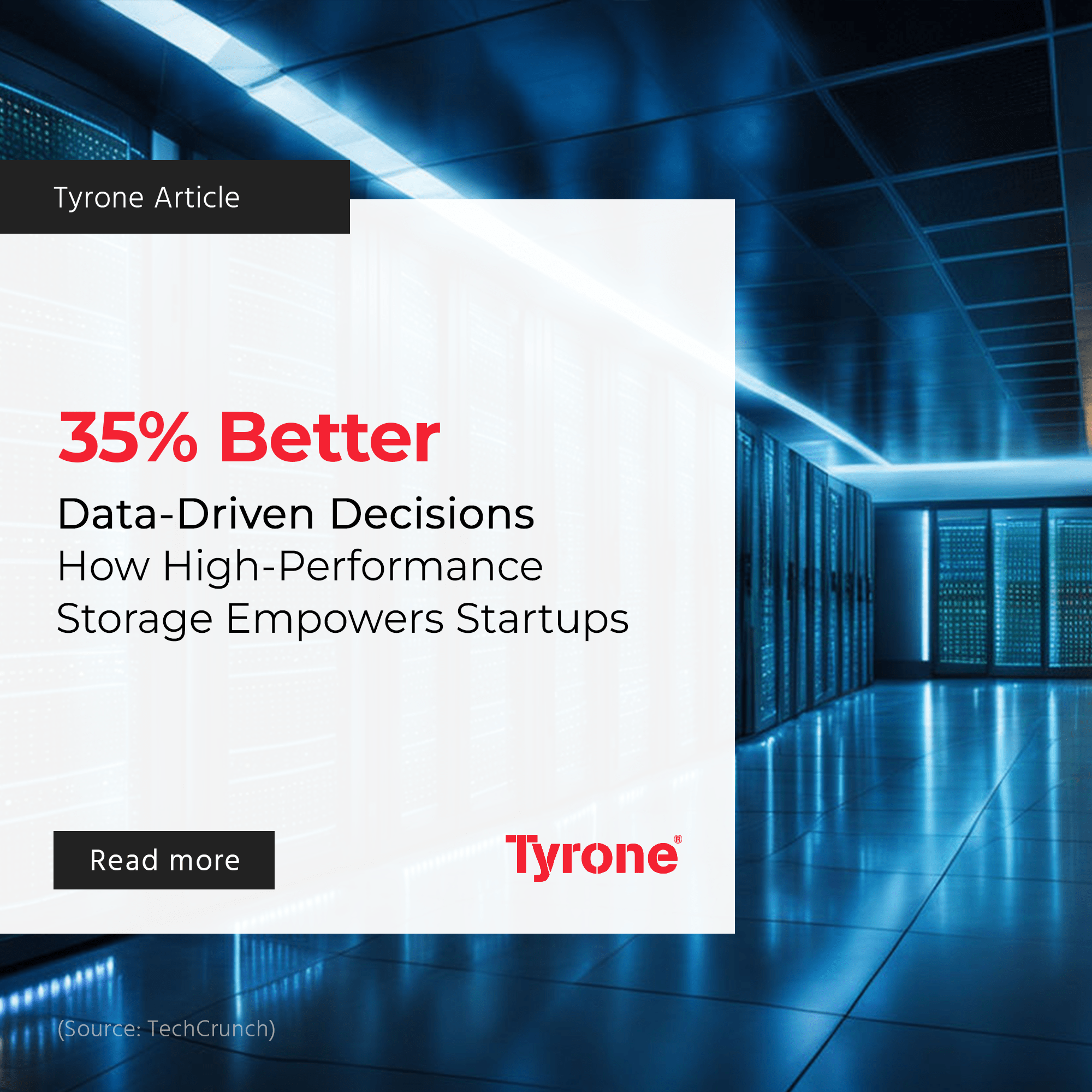Introduction
In the highly competitive startup ecosystem, data is often the most valuable asset. The ability to make swift, informed decisions based on real-time data can be the difference between success and failure. For startups, leveraging high-performance storage solutions is not merely a technical upgrade; it’s a strategic necessity. This article explores how high-performance storage can enhance data-driven decision-making by 35%, empowering startups to thrive in an increasingly data-centric world.
The Critical Role of Data in Startup Success
In today’s fast-paced business environment, startups rely heavily on data to drive decision-making. According to a study by McKinsey, companies that are data-driven are 23 times more likely to acquire customers and 19 times more likely to be profitable (Source: McKinsey). For startups, where every decision can have a significant impact on growth, the importance of reliable and fast access to data cannot be overstated.
High-performance storage solutions are the backbone of these data-driven strategies. They enable startups to store, retrieve, and analyze vast amounts of data quickly and efficiently. This capability is crucial in industries like fintech, healthcare, and e-commerce, where real-time data processing is vital.

How High-Performance Storage Boosts Decision-Making
Speed and Efficiency
High-performance storage solutions significantly reduce the time it takes to access and process data. For startups, this speed translates directly into faster decision-making. A report by Gartner highlights that companies with high-performance storage experience a 35% improvement in decision-making speed (Source: Gartner). This improvement is particularly critical for startups that need to react swiftly to market changes and customer needs.
Scalability to Match Growth
Startups are often characterized by rapid growth, which means their data storage needs can increase exponentially in a short period. High-performance storage solutions offer scalability that allows startups to handle increasing data volumes without compromising speed or performance. This scalability ensures that as the startup grows, its ability to make data-driven decisions remains unaffected.
Real-Time Analytics
The ability to perform real-time analytics is a game-changer for startups. With high-performance storage, startups can analyze data as it is generated, providing immediate insights that inform strategic decisions. According to a study by IDC, 64% of companies that implemented real-time analytics reported faster decision-making processes (Source: IDC). This capability is particularly beneficial in industries where market conditions can change rapidly, and decisions need to be made on the fly.
Case Study: The Impact of High-Performance Storage on a Fintech Startup
Consider a fintech startup that provides real-time financial analytics to its customers. The company needs to process large volumes of transactional data in real-time to offer accurate insights. By implementing high-performance storage solutions, the startup was able to reduce data retrieval times by 40%, resulting in a 35% improvement in overall decision-making efficiency. This enhancement not only improved customer satisfaction but also gave the startup a competitive edge in the market.
Cost Efficiency and ROI
Reducing Operational Costs
While the initial investment in high-performance storage solutions may seem significant, the long-term cost savings can be substantial. By optimizing data retrieval and processing times, startups can reduce the operational costs associated with slow data management. A report by Forrester found that companies implementing high-performance storage saw a 25% reduction in data management costs (Source: Forrester). For startups operating on tight budgets, these savings can be reinvested into other critical areas of the business.
Maximizing ROI
The return on investment (ROI) from high-performance storage is not just about cost savings; it’s about enabling better business outcomes. Faster, more informed decision-making leads to improved product development, more effective marketing strategies, and enhanced customer experiences. According to a study by Bain & Company, startups that leveraged high-performance storage saw a 30% increase in ROI compared to those that did not (Source: Bain & Company).
Security and Compliance Benefits
Enhanced Data Security
Data security is a top concern for startups, especially those in regulated industries like healthcare and finance. High-performance storage solutions often come with advanced security features that protect sensitive data from breaches and ensure compliance with industry regulations. According to a report by IBM, companies that invested in high-performance storage with built-in security features experienced a 45% reduction in data breaches (Source: IBM). This reduction not only protects the startup’s reputation but also avoids costly penalties associated with data breaches.
Compliance with Industry Standards
Startups operating in industries with strict data regulations must ensure compliance with standards like GDPR, HIPAA, and PCI-DSS. High-performance storage solutions often include compliance management tools that help startups meet these requirements efficiently. This compliance capability is crucial for avoiding legal issues and maintaining customer trust.

Conclusion
In the startup world, where agility and speed are paramount, high-performance storage is a critical enabler of success. By improving data-driven decision-making by 35%, these solutions empower startups to stay ahead of the competition, scale effectively, and maximize ROI. The statistics and case studies presented here demonstrate that investing in high-performance storage is not just a technical decision; it’s a strategic move that can define the future trajectory of a startup.
For stakeholders, the message is clear: High-performance storage is not a luxury—it’s a necessity for any startup aiming to succeed in a data-driven world.












